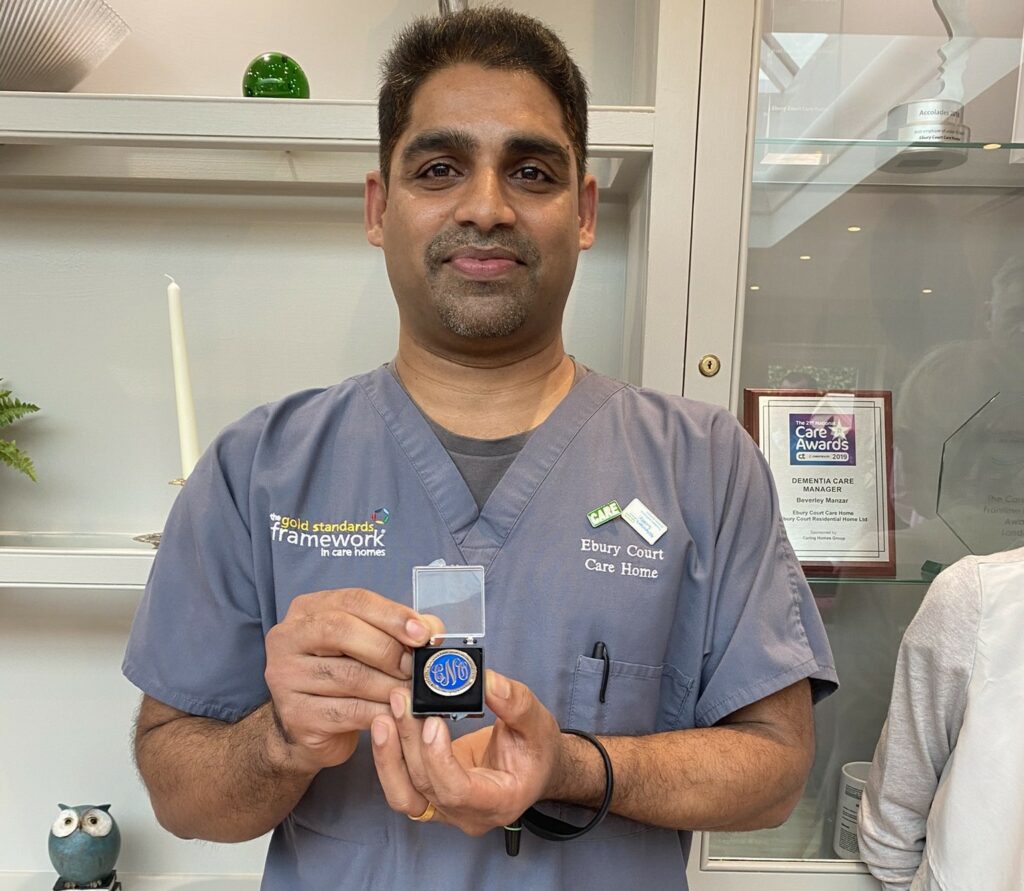Developing new roles in social care to increase nursing and AHP support capacity in NEL

Creating a framework for sustainable co-delivery of nursing and AHP services between care providers and NHS Trusts in North East London.
With our partners BHR CEPN we have been awarded funding from the Rayne Foundation to create a framework for sustainable co-delivery of nursing and AHP services between care providers and NHS Trusts that can be further scaled up within North East London and replicated across the UK.
The funding, along with partner contributions, will also be used to fund Nursing Associate and AHP assistant practitioner roles in care settings, and ‘grow our own’ experienced care staff into these new roles.
Why is this needed?
Our work previously piloting Nursing Associates in non-nursing care homes and AHP Enablement Champions in care homes has helped us recognise the inequity in available support for apprenticeship delivery between health and care.
Shortages of nursing and AHP staff available for community-based services are exacerbating waiting lists, however untapped potential within the social care workforce presents an opportunity to increase capacity within nursing and AHP services by ‘growing’ suitable care staff.
Barriers to this have been cited as a lack of adapted commissioning models to create and support enhanced roles within the care setting and a need for available and agreed-upon governance structures to facilitate cross-organisational delegation and supervision that don’t readily exist. In addition, whilst care staff have completed apprenticeships and qualified, the lack of sustainable funding has hindered the creation of actual enhanced roles for them to move into and deliver the greatest benefit.
Funding from the Rayne Foundation combined with partner contributions will be used to develop a sustainable system of training, governance, and funding to deliver career and development opportunities within the care sector, support integration and improve the experience of people drawing on care.
Aims of the project
The project will create Nursing Associates and AHP Assistant Practitioners, who will be employed by care providers but work closely with NHS Trust colleagues who will delegate health interventions to these roles.
Building on the learning and partnerships generated through our earlier pilots in NEL the project will focus on:
- Aligning with service priorities: Collaborating with Nursing, AHP and commissioning colleagues to identify areas of high service demand/capacity challenge and aligning the new roles to ease pressure points and reflect commissioning priorities.
- Creating new roles based in care: Creating both apprentice and qualified Nursing Associate and Assistant Practitioner posts with key care providers, supporting co-development of Job Descriptions and way of working, training delivery models and provision of funding.
- Governance for co-working: Establishing organisation-to-organisation delegation and supervision and governance models agreed at North East London level between care providers, Trusts and other stakeholders.
- Sustained funding for posts and services: Establishing financial principles to fund and sustain the qualified roles within care settings as well as address ongoing affordability issues with apprenticeships
- Measuring outcome: Development of a monitoring and evaluation framework, co-designed with stakeholders to measure health interventions and outcomes delivered by the new roles and the overall impact of the project
What will success look like?
The project has significant potential impact as it creates, tests and embeds the framework for a new integrated way of working. Benefits include:
- Increased nursing and AHP therapies knowledge within Care will support more preventative care and keep residents well for longer in the place they call home. Equally it will facilitate faster hospital discharge by ensuring availability of necessary support.
- Improved equity and inclusion in workforce development as the social care workforce in NEL reflects the highly diverse population of the area.
- Improved perception of care where staff can have the same career aspirations and opportunities as their colleagues in health settings.
- Opportunities for career progression that will help staff retention and attract good quality applicants.
- A reduction in waiting lists by freeing up qualified staff in health settings from lower-level intervention.
- Strengthened relationships between health and care through close working to train, supervise and delegate to colleagues in Care.
We’ve already seen success
One of our first cohort of Apprentice Nursing Associates, Ajeesh Thomas, a care worker from East London was recognised for his outstanding performance and contribution to the health and safety of his care home residents. He received a Chief Nurse Adult Social Care award from Deborah Sturdy.

Our first eight Enablement Champions graduated from the Programme, all achieving a Level 4 Lead Practitioner in Adult Care Apprenticeship and a Level 4 Diploma in Adult Care and are recognised as champions and influencers in delivery of rehabilitation and reablement.
I’ve worked as a care worker for 20 years. I’ve not had the opportunity to study until now. This has given me the opportunity to develop new skills, do better in my job and for the first time think about the future of my career.
Enablement Champion



